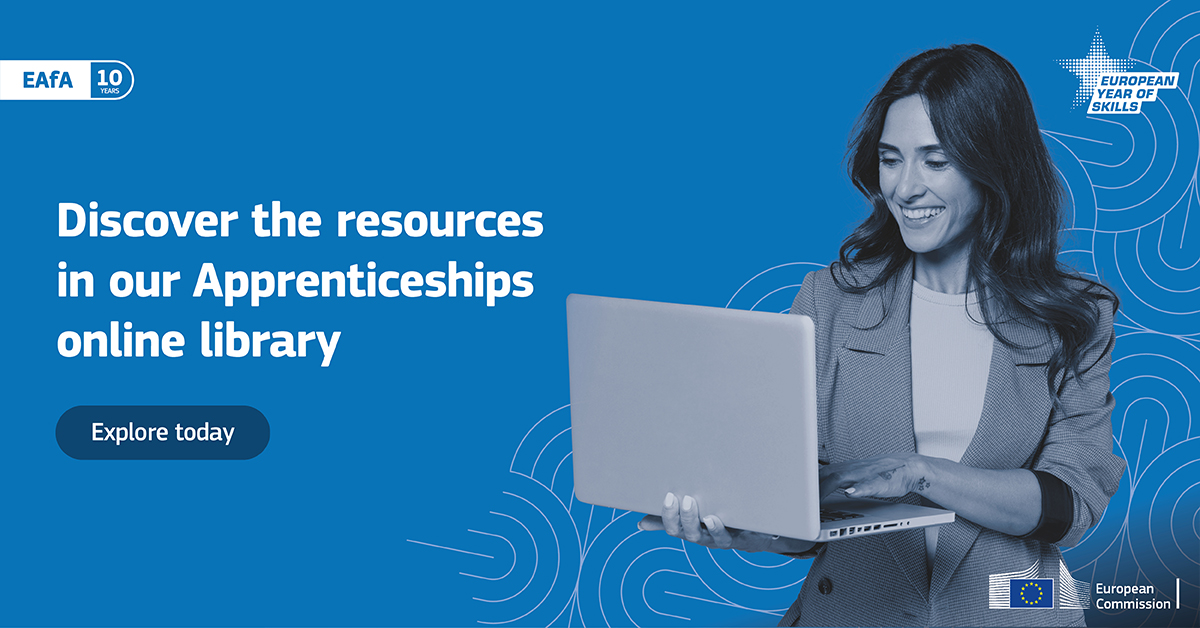Online library - Nov 23
date: 21/11/2023
This policy brief sheds new light on the evolving landscape of digital skill requirements in the EU, using Cedefop analysis of online job advertisements. It showcases the pivotal role of digital skills in economic development and global competitiveness.
This guide acts as an introduction to the EU’s Erasmus+ programme for potential applicants. It provides general information about the programme and the specificities of applying, before exploring themes surrounding the programme’s Key Actions.
This article examines the evolution of EAfA and Germany's Alliance for Initial and Further Training over the past two decades, focusing on four key drivers.
This paper presents a systematic framework of the most needed vocational education and training (VET) reforms in the Azores, a Portuguese outermost region.
This episode of the ILO's ‘SKILLS Bridge’ masterclasses focuses on the potential challenges and enabling factors brought about by digital transformations in skills. It focuses on the innovative pathways available to strengthen technical and vocational education and training (TVET) systems and programmes in developing countries.
This paper acts as a review of Aston University’s Digital and Technology Solutions programme, specifically the impact of its 8-week computing boot camp on the learning outcomes of its students. The paper presents the bootcamp as a good practice example for other institutions seeking to set up or improve their digital apprenticeship offers.
This study assesses the challenges uncovered throughout the InT#Tech Erasmus+ Strategic Partnership. It provides recommendations for VET providers who would like to design international apprenticeship programmes.
This article acts as a manifesto for a Pedagogy of Modern Apprenticeship. It uses learning sciences research and lessons learned from apprenticeships to assess the learning outcomes of different apprenticeship designs.
In the context of Ireland’s rising need for skilled graduates in manufacturing and engineering, this article acts as a critical review of the ‘learn and work’ model, a hybrid of traditional Irish apprenticeships and class-based university degrees

